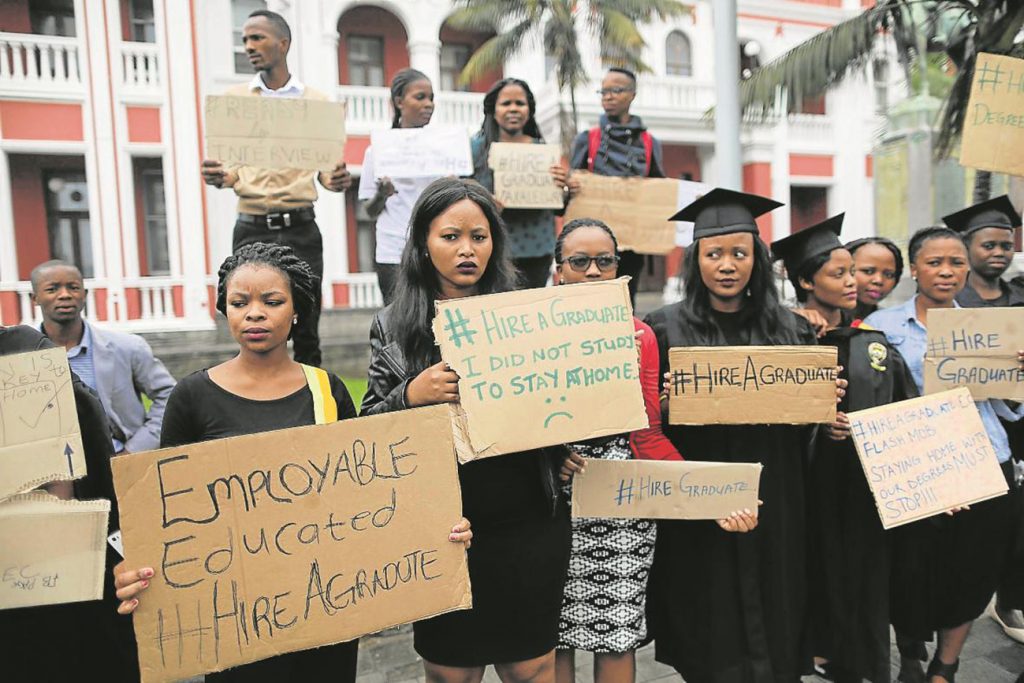Business Day Youth Day
What Is Needed To Drive Youth Employment?
Before the COVID-19 pandemic, unemployment in South Africa was already at its highest rate since 2008, with more than half of the country’s youth unable to find work. Statistics SA’s Quarterly Labour Force Survey showed that 40.1 per cent of young people aged 15–34 are not engaged in any formal employment, education or training. This means that 8.2 million young people were already out of work before the start of the pandemic, which the United Nations says will severely disrupt youth’s access to education and employment.
In her May 20 newsletter, Business Leadership SA CEO Busi Mavuso says the pandemic has resulted in new ways of doing business, which will drive disruption in the job market. “To preserve jobs in an already high unemployment environment, business and the state are going to have to be innovative to avert an even greater economic crisis that will emerge from these changes.”
Business Unity South Africa (BUSA) chief executive Cas Coovadia says that post-pandemic changes in how we deal with unemployment will be essential. “ e COVID-19 pandemic will result in a recalibration of the global socioeconomy, and youth unemployment will have to be considered within that context.
“We need to understand the economy we will rebuild and the skills we will need. All initiatives working in the area of youth employment must then collaborate to focus on developing such skills.”
Creating opportunities
One such initiative is the Youth Employment Service (YES), which, since its launch in 2018, has created more than 32 000 quality work experiences. “YES is an initiative that brings together all the stakeholders with a common goal. It has the ability to use tools such as the Department of Trade and Industry B-bBEE incentive, private sector capital, and the goodwill and buy-in of labour,” says YES CEO Tashmia Ismail-Saville.
YES has been particularly effective in creating jobs and moving salaries to places beyond the major economic nodes of Gauteng and Cape Town to communities in the Eastern Cape, KwaZulu-Natal and Limpopo.
It is not a recruitment agency, clarifies Ismail-Saville. Rather, YES works with organisations and the corporate sector to identify gaps in their value chain that could be filled by young candidates. In exchange for a 12-month internship, partner companies are rewarded with level-ups on their B-bBEE scorecards.
e COVID-19 crisis will have a “massive” impact on the workforce, cautions Ismail-Saville, with skilled people effectively being forced to trade down. “ The likelihood is that it will become increasingly more difficult for the youth to enter the workforce.” Therefore, structured programmes such as YES will be vital in helping these youth get a foot in the door. “We are looking at multiple greenfield projects to place youth into value chains as we feel they are well equipped to work digitally, act as ambassadors on the ground, do market research, and embrace the creativity needed in these ‘new economy’ workspaces,” says Ismail-Saville.
The value of partnerships
YES is also working with Transnet and other private sector funders such as Nedbank to create opportunities in local communities, so that the youth can work closer to home. “The sheer cost of travelling to and from work locks many people out of the economy,” says Ismail-Saville.
Nedbank has committed to providing work experiences to more than 300 recruits in 2021. “Our hope is that by giving youth the opportunity of their first job, they will go on to become inspiring leaders and entrepreneurs, who will, in turn, create job opportunities for others. YES is the perfect partner for this,” says Deb Fuller, Nedbank Group Human Resources executive.
One of YES’ more immediate responses to the lockdown has been the YES #Masks4All project, which has involved strategic partnerships with Uber and property group Exemplar to provide R1-million’s worth of mask orders for seamstresses in the townships.






 Sign-up and receive the Business Media MAGS newsletter OR SA Mining newsletter straight to your inbox.
Sign-up and receive the Business Media MAGS newsletter OR SA Mining newsletter straight to your inbox.